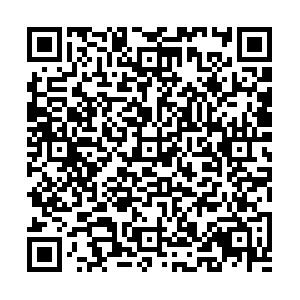The View of Children Since the May Fourth Movement: Historical Evolution and Reflections
-
摘要: 儿童观是人们对儿童本身及其价值的总态度。儿童观的形成不仅受特定社会背景影响,而且受西方儿童文化与观念的影响。在五四运动至21世纪以来的100年历史长河中,我国儿童观演进经历了五个阶段:五四运动前,儿童是"工具",是个人财产,体现的是"家庭本位"儿童观;五四运动至新中国成立,西方文化思想为我国儿童观带来了新思潮,迎来了"儿童本位"儿童观;新中国成立至改革开放,儿童成为发展社会主义事业的重要力量,"社会本位"儿童观出现;改革开放至20世纪末,学前教育事业迎来了新的春天,儿童再次被"发现","儿童本位"儿童观得以重生;进入21世纪至今,时代进步促使我们不断追寻"儿童本位"儿童观的现代化内涵。Abstract: The view of children is the general attitude towards children and their value. The formation of the view of children is shaped by its specific social context and influenced by the advanced Western culture and view of children. During the 100-year development since the May Fourth Movement, the evolution of the view of children in China has undergone the pendulum of development and finally towards stable, including five stages:first, before the May Fourth Movement, children were viewed as "tools" and personal property, reflecting the "family-oriented" view of children in that period. Second, from the May Fourth Movement to the founding of the People's Republic of China, the advanced Western thoughts had brought the "child-oriented" view of children to China. Third, from the founding of People's Republic of China to the Reform and Opening Up, children had been viewed as an important promoting force of socialism. Fourth, since the Reform and Opening Up to the end of the 20th century, preschool education had ushered in a new spring, with the "re-discovery" of children and the reborn of "child-oriented" view. Fifth, since the beginning of the 21st century, the social progress has promoted the development of the modern connotation of "child-oriented" view. Key words:May Fourth Movement; the view of children; children; child-orientation
-
Key words:
- May Fourth Movement /
- the view of children /
- children /
- child-orientation
-
[1] 郭法奇. 重新认识幼儿教育:一些基本问题的思考[J]. 河北师范大学学报(教育科学版版), 2018(2):19-27. [2] 虞永平. 论儿童观[J]. 学前教育研究, 1995(3):5-6. [3] 刘晓东. 论"儿童是成人之父"[J]. 南京师大学报(社会科学版), 1999(4):65-70. [4] 贾云. 论儿童观的范式转型——社会建构主义视野中的儿童观[J]. 南京师大学报(社会科学版), 2009(2):96-100. [5] 蒋雅俊. 改革开放40年学前教育政策中的儿童观变迁[J]. 学前教育研究, 2019(3):12-20. [6] 韩雪军. 教师儿童观的革新:基于儿童人类学的思考[J]. 湖南师范大学教育科学学报, 2013, 12(5):32-36+47. [7] 郭法奇. 儿童观转变与教师教育——杜威的思考及给我们的启示[J]. 教师教育研究, 2005(1):70-73+9. [8] 张娜, 陈佑清. 现代儿童观及其对学前教育课程设计的意义[J]. 全球教育展望, 2013(3):91-98. [9] 鲁迅. 我们现在怎样做父亲[M]. 郑州:河南人民出版社, 1994:41. [10] 北京市教科所. 陈鹤琴全集(第1卷)[M]. 南京:江苏教育出版社, 1992:1. [11] 周红安. 中西儿童观的历史演进及其在教育维度中的比较[D]. 武汉:华中师范大学, 2003. [12] 王海英. 20世纪中国儿童观研究的反思[J]. 华东师范大学学报(教育科学版), 2008(2):16-24. [13] 刘晓东, 卢乐珍, 等. 学前教育学[M]. 南京:江苏教育出版社, 2015. [14] 杜威. 杜威教育论著选[M]. 赵祥麟, 王承绪, 编译. 上海:华东师范大学出版社, 1981:1-2. [15] 陶行知. 陶行知全集(第1卷)[M]. 长沙:湖南教育出版社, 1984:618. [16] 许琼华. 陶行知幼儿科学教育思想述评[J]. 教育探索, 2009(1):8-9. [17] 张亚军. 披荆斩棘开路先锋——陈鹤琴学前教育思想概览[J]. 学前教育研究, 2006(3):5-8. [18] 张雪门. 幼稚园教育概论[M]//自唐淑, 钟昭华. 中国学前教育史. 北京:人民教育出版社, 2000:227. [19] 陈乐乐. 新中国70年儿童观的历史考察与反思[J]. 南京师大学报(社会科学版), 2019(3):41-49. [20] 幼儿园教育工作指南(初稿)(节录)[C]//中国学前教育研究会. 中华人民共和国幼儿教育重要文献汇编. 北京:北京师范大学出版社, 1999:635. [21] 幼儿园暂行教学纲要(草案)[C]//中国学前教育研究会. 中华人民共和国幼儿教育重要文献汇编. 北京:北京师范大学出版社, 1999:565, 571. [22] 中共中央、国务院转发《全国托幼工作会议纪要》 的通知(1979年10月11日)[C]//中国学前教育研究会. 中华人民共和国幼儿教育重要文献汇编. 北京:北京师范大学出版社, 1999:122. [23] 幼儿园工作规程(试行)[C]//中国学前教育研究会. 中华人民共和国幼儿教育重要文献汇编. 北京:北京师范大学出版社, 1999:291. [24] 幼儿园管理条例(1989)[C]//中国学前教育研究会. 中华人民共和国幼儿教育重要文献汇编. 北京:北京师范大学出版社, 1999:301. [25] 孙圆. 儿童观的演进及其教育学考察[J]. 中国教育学刊, 2017(1):29-34. [26] 蒋雅俊, 刘晓东. 儿童观简论[J]. 学前教育研究, 2014(11):3-8+16. [27] 虞永平, 王春燕. 学前教育学[M]. 北京:高等教育出版社, 2017:66. [28] 刘晓东. 儿童文化与儿童教育[M]. 北京:教育科学出版社, 2006:35. [29] 叶妙企. 科学的儿童观:幼儿教师专业素质之本[J]. 中国教育学刊, 2017(S1):204-205+209. -

 点击查看大图
点击查看大图
计量
- 文章访问数: 1408
- HTML全文浏览量: 228
- PDF下载量: 99
- 被引次数: 0



 下载:
下载: